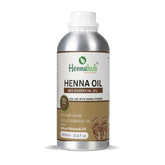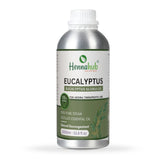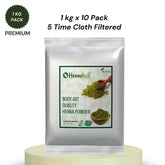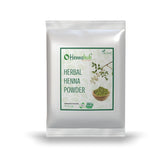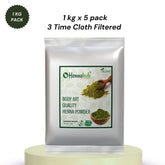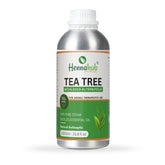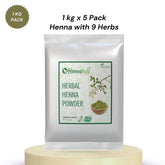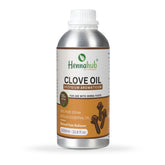Discover the Different Types of Henna Powder and Their Unique Uses
Explore the various types of henna powder, their unique characteristics, and uses. Learn about natural, neutral, and black henna, and discover how to choose the right henna for your hair and skin needs.
Introduction
Henna, a timeless tradition in many cultures, continues to captivate people worldwide. But did you know that there are different types of henna powder, each with its own unique properties and uses? This article will delve into the variations of henna powder and how they can be used to enhance beauty and wellness.

What is Henna Powder?
Henna powder is derived from the leaves of the henna plant (Lawsonia inermis), which are dried and ground into a fine powder. This powder is then mixed with liquids to create a paste used for dyeing hair, skin, and even fabrics.

Types of Henna Powder
There are three main types of henna powder: natural henna, neutral henna, and black henna. Each type has distinct characteristics and uses.
1. Natural Henna Powder
Natural henna powder is the purest form, containing only the ground leaves of the henna plant. It is known for its reddish-brown dye.
Composition and Features
Natural henna contains high levels of lawsone, which provides its dyeing capabilities. It is free from synthetic additives and chemicals.

Uses and Benefits
Natural henna is primarily used for:
- Hair dyeing: It imparts a rich, reddish-brown color to hair.
- Body art: Traditional henna designs are created on the skin for special occasions.
- Conditioning: It conditions and strengthens hair, adding shine and volume.
2. Neutral Henna Powder
Neutral henna, or Cassia obovata, is not true henna but is often used similarly.
Composition and Features
Neutral henna does not contain lawsone and therefore does not dye the skin or hair. It is composed of Cassia obovata leaves.
Uses and Benefits
Neutral henna is used for:
- Hair conditioning: It strengthens hair without changing its color.
- Scalp treatment: It helps in treating scalp conditions like dandruff.
3. Black Henna Powder
Black henna powder is a blend that often includes indigo, other herbs, and sometimes synthetic dyes.
Composition and Features
Black henna may contain harmful chemicals like para-phenylenediamine (PPD), which can cause allergic reactions.

Uses and Benefits
Black henna is used for:
- Hair dyeing: It gives a black or dark brown color to hair.
- Temporary tattoos: Often used for creating black temporary tattoos.
Regional Varieties of Henna Powder
Henna powder can also be categorized by its region of origin, with Indian, Moroccan, and Yemeni varieties being the most popular.
Indian Henna Powder

Moroccan Henna Powder
Yemeni Henna Powder
Henna Powder for Hair
Henna powder is a popular natural alternative for hair care.

Natural Hair Dye
Henna provides a vibrant, natural color that ranges from red to auburn depending on the original hair color.
Conditioning Properties
Besides coloring, henna also conditions hair, making it smoother and shinier.
Henna Powder for Skin
Henna has been used for centuries to create beautiful body art and also benefits the skin.
Traditional Body Art
Henna is traditionally used to adorn the body with intricate designs, especially during weddings and festivals.
Skin Conditioning
Henna has cooling properties and can be used to treat minor burns and skin conditions.
Choosing the Right Henna Powder
Selecting the right henna powder can be crucial for achieving the desired results.
Factors to Consider
- Purity: Ensure the henna is free from synthetic additives.
- Origin: Different regions produce henna with varying properties.
- Intended Use: Choose based on whether you need it for hair, skin, or both.
Tips for Selection
- Always read the ingredient list.
- Opt for reputable brands.
- Check for reviews and recommendations.
How to Prepare Henna Powder
Preparing henna powder correctly is key to achieving the best results.
Step-by-Step Guide
- Mixing: Combine henna powder with a liquid (water, lemon juice, or tea) until it forms a smooth paste.
- Resting: Let the paste sit for a few hours to release the dye.
- Application: Apply the paste to hair or skin and let it sit for a few hours.
- Rinsing: Rinse off the paste thoroughly with water.

Tips for Best Results
- Use warm liquids to mix the paste.
- Cover the paste while it rests to prevent drying.
- Apply to clean, oil-free hair or skin.
Conclusion
Henna powder is a versatile and natural product with a rich history and numerous uses. Whether you're looking to dye your hair, create beautiful body art, or simply condition your hair and skin, understanding the different types of henna can help you make the best choice.
FAQs
How long does henna last on skin and hair?
Henna typically lasts 1-2 weeks on the skin and 4-6 weeks on the hair, depending on hair type and washing frequency.
Can henna cause allergic reactions?
Natural henna is generally safe, but black henna containing PPD can cause allergic reactions.
Is black henna safe to use?
Black henna can be harmful due to potential chemical additives like PPD. It's best to use natural henna or ensure black henna is free from harmful chemicals.
How often can you apply henna to your hair?
Henna can be applied every 4-6 weeks. Frequent application can enhance color but may also lead to dryness.
What is the best way to store henna powder?
Store henna powder in a cool, dark place in an airtight container to maintain its potency.

